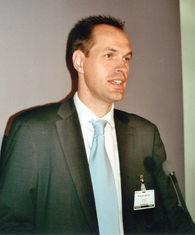

EurepGAP has committed to prioritising harmonisation in its protocol overhaul following massive pressure from suppliers at its annual conference.
In a prepared statement co-written on behalf of international fresh produce suppliers by five leading trade associations, Freshfel treasurer Ronan Raes and Jean-François Proust, representing both the Southern Hemisphere Association of Fresh Fruit Exporters (SHAFFE) and ColeACP, the EU ACP countries liaison body, expressed concern over increased costs and the need to “comply with a multiplicity of criteria which are often interpreted and implemented differently.”
The statement, delivered last week at EurepGAP’s two-day conference, in Prague, said food safety, the initial focus of EurepGAP, is now often overlooked, and urged committee members to make it a priority again in their eventual objective to secure “harmonisation and mutual understanding across the chain”. Food safety should not be used as an “instrument of competition among retailers,” the statement argued.
It also called for further efforts to be directed at sustaining best practice at a retail level to guarantee food safety at the final stages of the supply chain, as well as some form of reward for parties who comply with requirements.
EurepGAP chairman Nigel Garbutt responded positively to the supplier concerns. “We cannot act outside the regulatory boundaries, but there has never been this speed and pressure to harmonise,” he said. “We will do all we can to progress these issues within the forum of EurepGAP, particularly relating to MRLs [Maximum Residue Levels], which are the biggest challenge.”
Suppliers called for renewed examination of plant protection products (PPPs) and MRLs, with a view to emphasising the intrinsic differences between them. They recommended the setting up of a forum, in association with EurepGAP, to discuss relevant concerns, including harmonising MRLs and determining import tolerance at an EU level to secure free trade and increase overall consumption of fruit and vegetables.
MRLs should be recognised as values to facilitate trade, not as safety limits, with good agricultural practice based on PPPs, as firm guarantees of safe, affordable and good-quality produce, they said.
Also under discussion in the Czech capital was the recent hike in subscription prices, following complaints from members.
EurepGAP chief executive Kristian Moeller informed delegates that subscription levels have been modified to provide more favourable terms for smaller producers.
In a spirit of greater transparency, enhanced by the introduction of open round-table discussions, Moeller also shared the proposed spending plan for the organisation’s 2007 activities.
He said a €2.4 million budget, to be ratified next month, will continue to be directed at creating a suitable structure for delivering all the components of GAP in a format that can be translated by its secretariat into the 19 languages required by the 75 countries that are home to its members.



